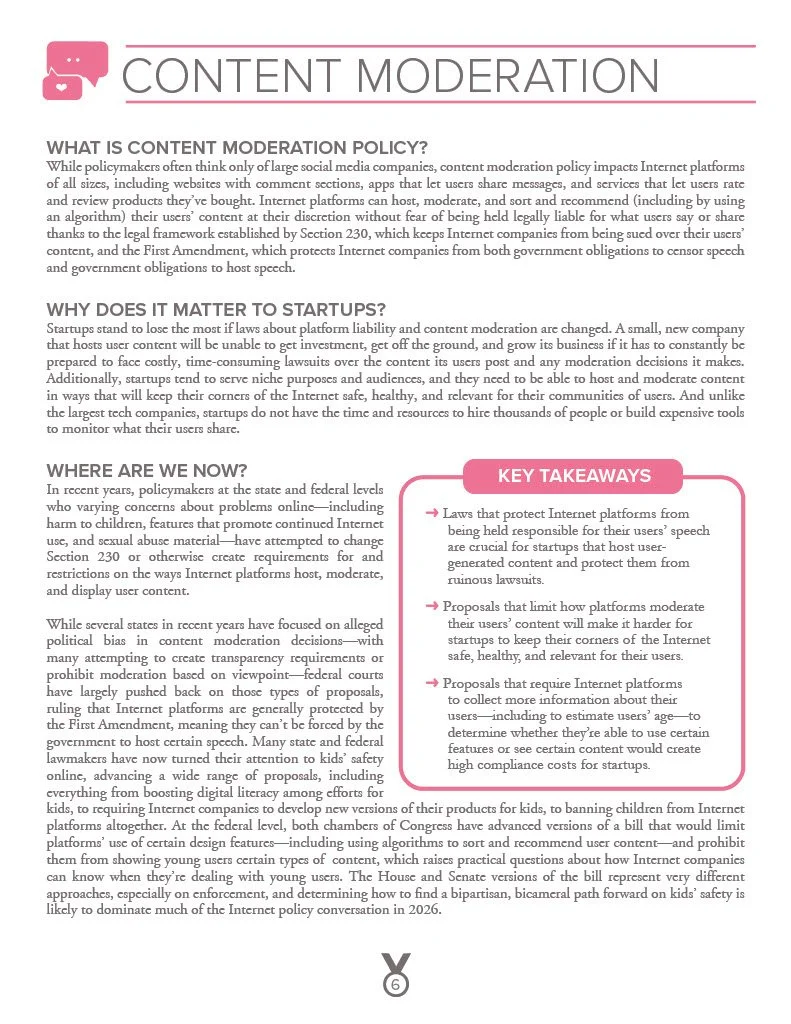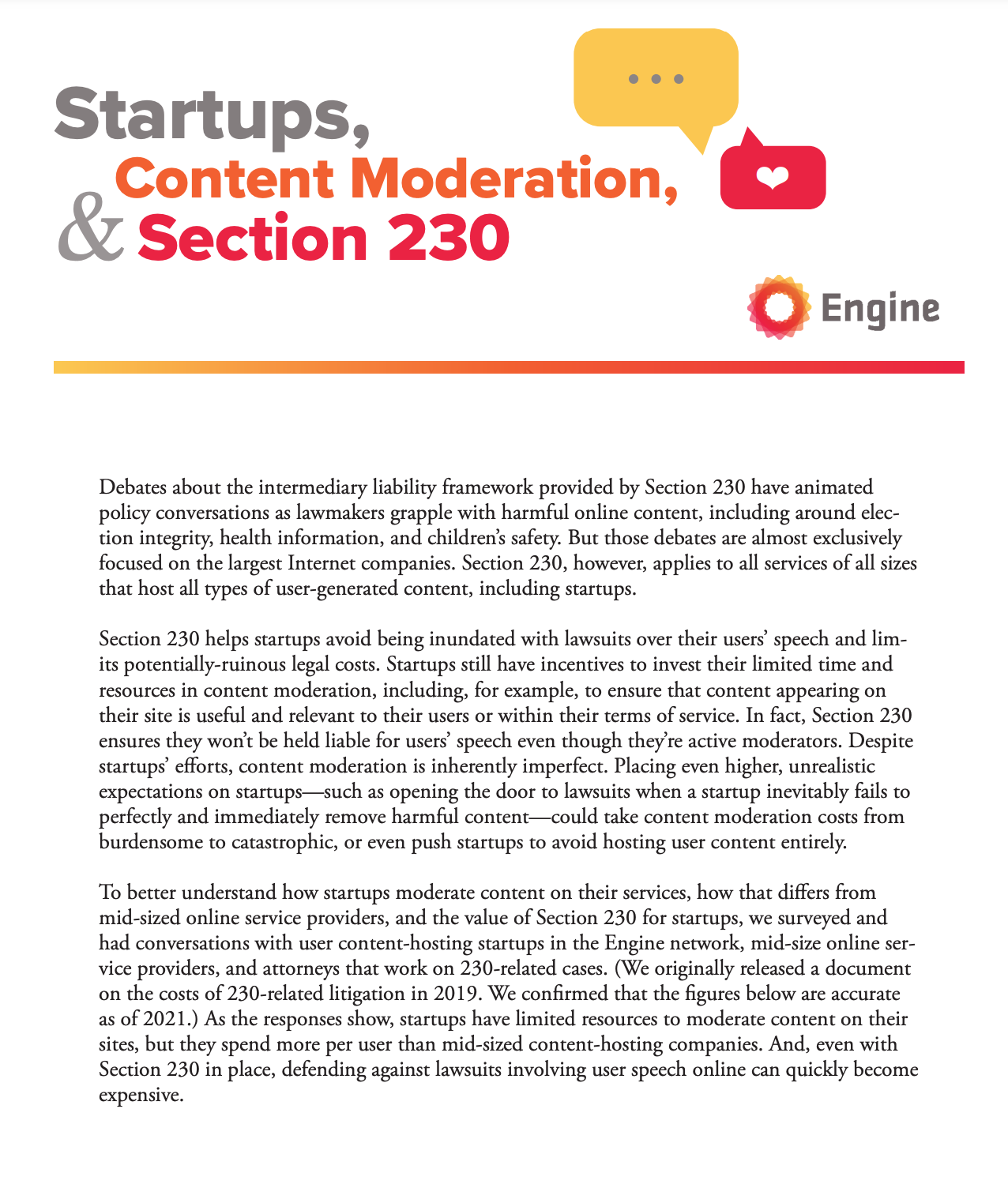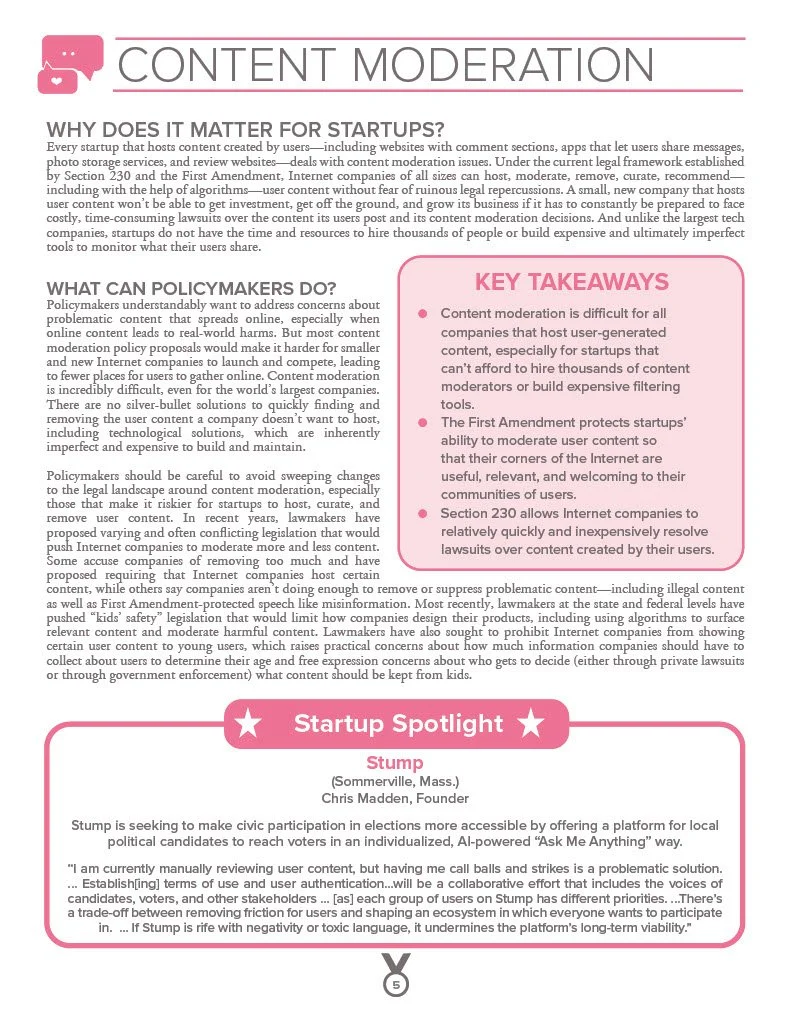Section 230 of the Communications Decency Act has been called the most important law impacting the Internet and it continues to serve as the bedrock principle behind user-generated content. Startups rely on the intermediary liability protections found in Section 230 to innovate and create new ways for people to communicate. It guarantees that a website which gives users a forum to express themselves freely will not face ruinous legal liability if someone says something illegal. As policymakers consider how platforms protect users, they also must keep in mind how our increasingly digital and connected world allows us to share stories, creations, and innovations.
Content Moderation Primer for Startups
Startups, Content Moderation, & Section 230
Content Moderation Primer for Policymaker








